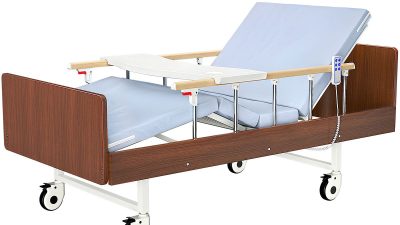When it comes to acquiring a homecare bed, whether for recovery, long-term care, or enhanced comfort for aging individuals, the decision between renting and purchasing is crucial. Each option comes with its unique set of benefits and drawbacks, tailored to fit different needs and circumstances.
Benefits of Purchasing a Homecare Bed
Long-Term Cost Efficiency: Purchasing a homecare bed, such as options from HomeCare Hospital Beds, might seem expensive upfront but is financially beneficial in the long term. With financing options available, the burden of initial cost is lessened. Moreover, owning the bed provides the chance to resell, recouping some of the costs.
Customization to Suit Specific Needs: Buying a bed like the UPbed Independence or Haven Series allows for customization. Purchased beds can be equipped with electronic adjustments and specialized mattresses, unlike standard rental beds, which may only offer manual adjustments.
Quality and Assurance: Buying a new bed guarantees receiving a product free from wear and tear, often accompanied by warranties for peace of mind.
Drawbacks of Purchasing a Homecare Bed
Initial Investment: The upfront cost, as seen with models like the Dream Series Full Articulation Hi-Lo Electric Bed, can be substantial, though it’s an investment in quality and comfort.
Maintenance Considerations: Ownership means being responsible for maintenance, which requires understanding the ease of service and availability from the supplier.
Advantages of Renting a Homecare Bed
Ideal for Short-term Use: Renting is perfect for those needing a homecare bed temporarily, often covered by insurance, avoiding large upfront payments.
Flexible Cost Distribution: Renting allows for spreading costs over time, manageable for many budgets without committing to a full purchase.
Disadvantages of Renting a Homecare Bed
Quality and Hygiene Concerns: Rental beds may not match the quality of new ones, with the added risk of hygiene issues from previous users, a concern for immunocompromised individuals.
Higher Long-term Costs: For extended use, rental fees can surpass the cost of buying a new bed, making it less economical over time.
Cost Comparison: Renting vs. Buying a Homecare Bed
When facing the decision of whether to rent or buy a homecare bed, understanding the costs involved is crucial.
Renting Costs
Monthly Cost Range: $200 to $500
Pros: High flexibility for short-term needs without a significant upfront payment
Cons: Higher long-term costs if used for a prolonged period
Buying Costs
New Bed Price Range: $500 to $5000
Pros: More cost-effective in the long run, customizable to specific needs
Cons: Larger initial investment required
Long-term Cost Comparison
Renting may seem less expensive in the short term, but the total cost of renting can exceed the price of purchasing a new bed if the rental period extends. For example, a year of renting at $300 per month accumulates to $3600, potentially matching or surpassing the cost of a mid-tier new bed.
For those considering the purchase of a homecare bed, my recommendation is the Full Electric Hospital Bed for Home Use with Adjustable, 76.8″ x 37.8″ x 19.3″, priced at $999.00.

Full Electric Hospital Bed for Home Use with Adjustable
Key Features:
Fully Electric Adjustments: Allows for easy adjustments of head, foot, and bed height with a remote control, offering maximum comfort and versatility for the user.
Dimensions: At 76.8 inches long, 37.8 inches wide, and a height range of 19.3 inches, it provides ample space and support for a variety of users.
Cost-Effective: With a price of $999.00, it strikes a balance between affordability and the benefits of a full electric bed, making it a suitable long-term investment over renting.
Why Choose This Model?
Long-Term Savings: Despite its upfront cost, purchasing this bed is more economical over time compared to the recurring costs of renting.
Quality and Comfort: The full electric capabilities enhance user comfort and ease of care, important for prolonged use at home.
Investment in Health: Owning the bed ensures that it can be customized and adapted to changing health needs, offering peace of mind that isn’t always possible with rented beds.


